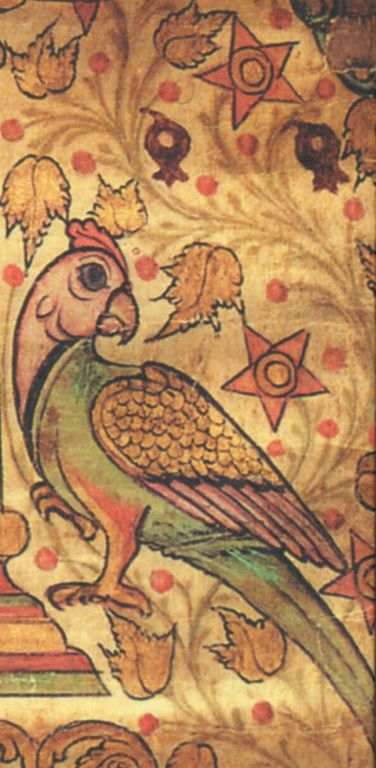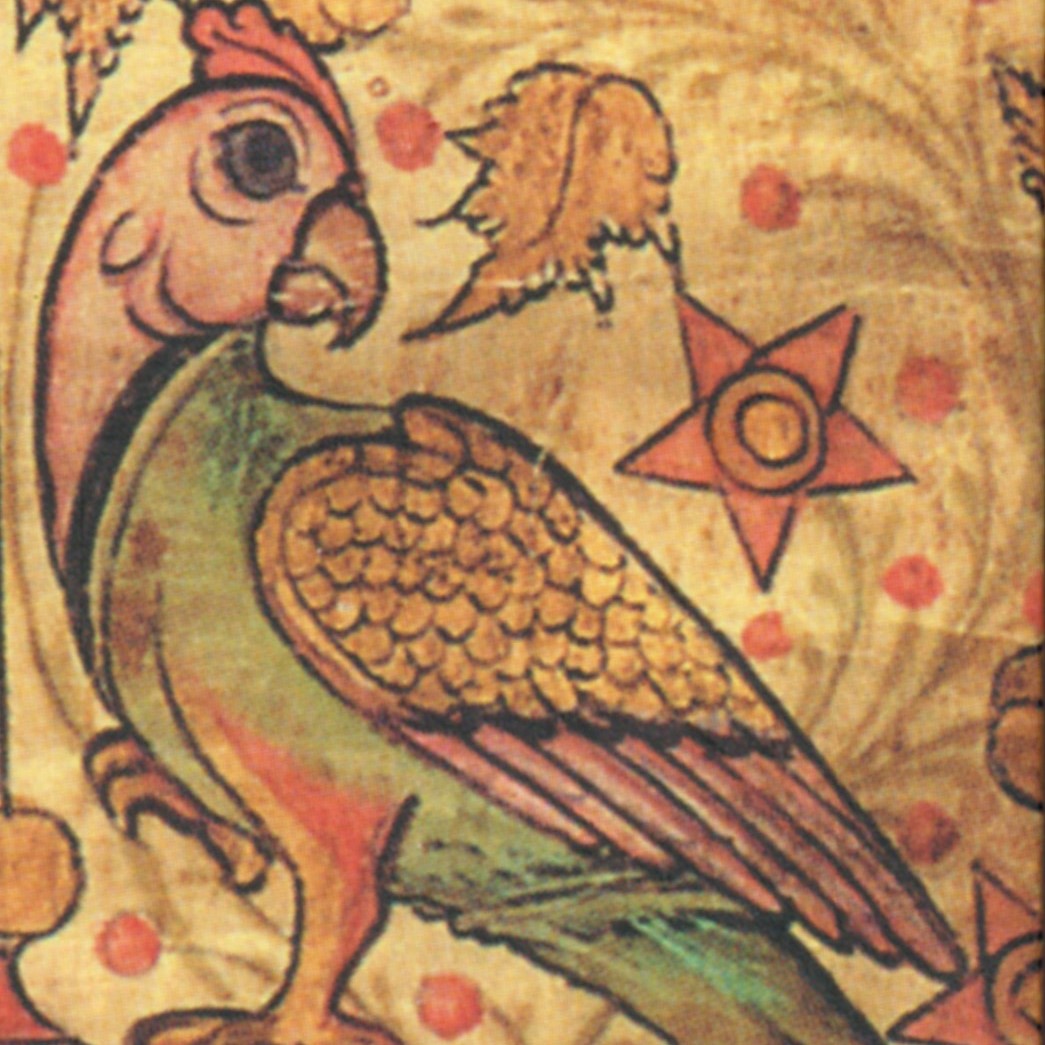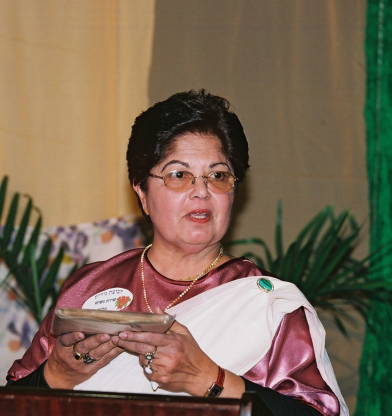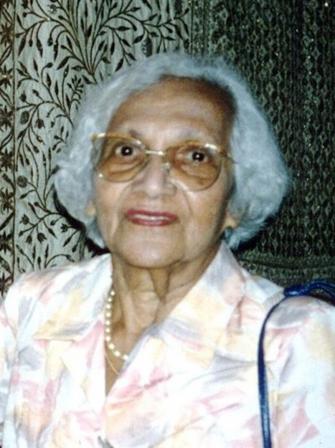2008/ 1981
41. The Ten Songs of King Solomon
41a. Nirit Singers (entire group) on their CD, track 1, 2008; III-1.
41b. Kadavumbhagam-Kochi women, Moshav Taoz, 1981.
Śelomo melehu pāḍiya pāṭṭu, stutipěṭṭa pāṭṭu itŏnnu
Bhūmiyil cŏlippěṭṭa pāṭṭukaḷ pāttil, stutipěṭṭa pāṭṭu itŏnnu
1. Of the ten songs sung by Shelomo Melehu,[1] this is most worthy of praise.
Of the ten famous songs in the world, this is most worthy of praise.
The first song was sung by Adam Harishon,[2] who prayed for forgiveness of sin.
We should observe the day that God gave us and keep it in honor of him.
Ěraṭṭiccu pāḍiya mośě ṟabbenuṃ isṟāel makkaḷuṃ kūḍa
Yamsūph puḷaṟnnatu kaņḍŏru nerattu āņḍamŏḍěyonuṃ kūḍa
2. The second was sung by Moshe Rabbenu[3] with the children of Israel.
When they beheld the Red Sea divided, they came together and sang.
They united to praise the Creator, the One Who created the world.
Just like them, may we always have courage whenever enemies come.3. The third was sung by the Israel children when water was given to them.
They praised the Creator of the world, the One Who gave them wells.
The wells were dug for them by the chiefs and handed over to them.
Praise God who turned the bitter to sweet; bow down three times to Him.4. The fourth was sung by Moshe Rabbenu, sung at the time of his death.
“Don’t cross the Jordan” was God’s command, because he had not obeyed.
Moshe himself passed on his rod; to his disciple he gave the rod.
Then the disciple came forth and spoke, saying “Israel did not obey.”5. The fifth to sing was Yoshua Bin-Nun[4] in the land of Gibeon.
For thirty and sixty nāḻika[5] of time, he stopped the moon and the sun.
He vanquished the army, defeated the foes, and conquered all the land.
He led Israel and they settled there, there in the holy land.6. The sixth to sing were Deborah and Barak in the Creator’s presence.
Sisera’s army fled before them; in their presence Sisera fled.
They ran for shelter with the horses, in the face of the scorching sun.
Like this may our bitter foes be ruined, in the presence of Israel.7. The seventh to sing was Hannah Nebiyah[6] on the day when she gave birth.
She gave birth to a precious man, gave birth on New Year’s Day.
With nine prayers and the call of the shofar, have mercy on us that day.
With the shofar’s call, send us Mashiya; deliver us, we pray.8. The eighth to sing was David Mashiya; “Destroy my sins,” he sang.
Bowing low, he begged the Almighty: “Destroy my enemies, please!”
Praying to God to end all his troubles, so he could sing and praise.
Send Eliyahu Hanabi to save us, with Mashiya ben David.[7]9. The ninth to sing was Shelomo Melehu, who always was singing in praise.
The key of knowledge was given to him and the speech of all creatures he knew.
On the throne that was built of knowledge—in honor he mounted and sat.
In all four quarters of God’s creation, his famous name was spread.10. The tenth to be sung, by God’s command, the Jewish People must sing.
Years have passed: five thousand years and five hundred twenty-one.
Send Mashiya to gather the People from all the scattered lands.
Send Mashiya, as it is promised, and so complete all the songs.
This popular song is internally dated in the mid-eighteenth century. Its contents serve as an illustration of how Talmudic knowledge was passed on through women’s songs. Following quite closely the Aramaic Targum to Song of Songs 1:1, it sets out in the same order the “ten songs” attributed to King Solomon, each reflecting a biblical passage mentioning a song or proclamation.[8]
Stanza 7 of the Malayalam song, about the biblical Hannah, includes an additional detail not found in the Targum—that Hannah gave birth to Samuel on Rosh Hashanah.[9] Without citing Talmudic sources, Ruby Daniel explained this reference to me while she was translating the song. The Malayalam phrase “day when the year was complete” she translated as “New Year’s Day,” noting the connection with the nine blessings that accompany the blowing of the shofar on that day each year.
The final stanza of the song contains the Hebrew date 5521 (1760/61 CE), placing its composition in the mid-eighteenth century.[10] Only one other song in the notebook collection contains an internal date (5452=1691/92 CE, in song II-42, “Feast of the Leviathan”).
Ruby Daniel used “The Ten Songs of King Solomon” as an example of Kerala Jewish women’s knowledge when relating a family story about her grandmother’s uncle in Bombay. He once impressed some learned men with whom he was studying, by consulting his wife to answer their question of whether Hannah or Deborah came first in Solomon’s “Ten Songs.” When they asked the uncle, “How is she such a learned person?” he explained that the Jewish women in Cochin knew many such things from their songs (Johnson 2006, 531). Our English version here is based primarily on Ruby Daniel’s translation from the early 1980s (Daniel and Johnson 1996, 83–85).
This song is found in almost all the collected notebooks (though in only one Paradesi book—the oldest). It was performed and recorded with a single melody as part of the 1981 kalippattu dance performance by Kadavumbhagam-Kochi women in Moshav Taoz and sung to a different melody without clapping in a 1994 recording in Nevatim (not included here). The musical version used here was performed by the Nirit Singers. According to Venus Lane, while recording the song for their 2008 CD they used both the melodies—stanza 1 led by a Kadavumbhagam woman to her mother’s tune and stanza 2 led by a Parur woman to her mother’s tune.
_________________________
[1] A Malayalam honorific for King Solomon (H: Shlomo ha-Melekh)
[2] Hebrew honorific: Adam the first person.
[3] Hebrew honorific: Moses our teacher.
[4] Hebrew: Joshua the son of Nun.
[5] In Malayalam a nāḻika is approximately 24.5 minutes, so ninety would be close to the thirty-six hours in the biblical account of Joshua stopping the sun and the moon (Joshua 10:12–14).
[6] Hebrew honorific: Hannah the prophetess.
[7] See the commentary for song 22 on the two epithets “David Mashiya” and “Mashiya ben David.” They are used interchangeably in this stanza.
[8] A recent English translation of this Targum by Jay C. Treat (based on a 1920–22 critical study of six Yemenite texts) identifies these ten biblical passages: Psalm 92, Exodus 15:1, Numbers 21:17, Deuteronomy 32:1, Joshua 10:12, Judges 5:1, I Samuel 2:1, II Samuel 22:1, Song of Songs, and Isaiah 30:29. (Treat, n.d.)
[9] Actually, Talmud tractate b. Rosh Hashanah 11a, 16 mentions that Hannah conceived her son Samuel on Rosh Hashanah rather than giving birth on that day. https://www.sefaria.org/Rosh_Hashanah.11a.16?lang=bi&with=all&lang2=en. Accessed July 14, 2022.
[10] I am aware of only one other song in the notebook collection containing an internal date (5452=1691/92 CE, in song II-42, “Feast of the Leviathan”).







